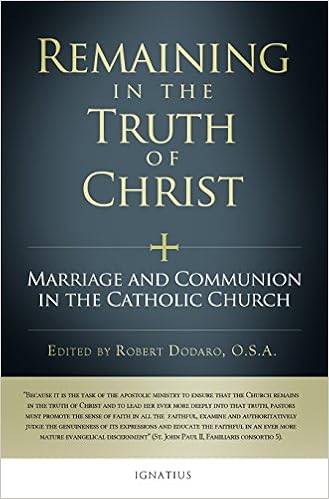 A reading from the first apology of Justin Martyr in defense of the Christians, c. 100-165
A reading from the first apology of Justin Martyr in defense of the Christians, c. 100-165
No one may share in the Eucharist except those who believe in the truth of our teachings and have been washed in the bath which confers forgiveness of sins and rebirth, and who live according to Christ’s commands.
For we do not receive this food as ordinary bread and as ordinary drink; but just as Jesus Christ our Savior became flesh through the word of God, and assumed flesh and blood for our salvation, so too we are taught that the food over which the prayer of thanksgiving, the word received from Christ, has been said, the food which nourishes our flesh and blood by assimilation, is the flesh and blood of this Jesus who became flesh.
The apostles in their memoirs, which are called gospels, recorded that Jesus left them these instructions: he took bread, pronounced the prayer of thanksgiving, and said: “Do this in memorial of me. This is my body”.
In the same way he took the cup, pronounced the prayer of thanksgiving, and said; “This is my blood”, and shared it among them and no one else.
From that time on we have always continued to remind one another of this.
From Pope St. John Paul II’s Post-Synodal Apostolic Exhortation Familaris consortio 5 cited in Remaining in the Truth of Christ (aka The Five Cardinals Book™):
Because it is the task of the apostolic ministry to ensure that the Church remains in the truth of Christ and to lead her ever more deeply into that truth, pastors must promote the sense of faith in all the faithful, examine and authoritatively judge the genuineness of its expressions and educate the faithful in an ever more mature evangelical discernment.
From Pope Benedict XVI’s 2007 Post-Synodal Apostolic Exhortation Sacramentum caritatis, in the section on “The Eucharist and the indissolubility of marriage” (29 ff.) cited in Remaining in the Truth of Christ (aka The Five Cardinals Book™):
[O]ne should begin by assuming that the fundamental point of encounter between the law and pastoral care is love for the truth: truth is never something purely abstract, but a real
part of the human and Christian journey of every member of the faithful. Finally, where the nullity of the marriage bond is not declared and objective circumstances make it impossible to cease cohabitation, the Church encourages these members of the faithful to commit themselves to living their relationship in fidelity to the demands of God’s law, as friends, as brother and sister; in this way they will be able to return to the table of the Eucharist, taking care to observe the Church’s established and approved practice in this regard. This path, if it is to be possible and fruitful, must be supported by pastors and by adequate ecclesial initiatives, nor can it ever involve the blessing of these relations, lest confusion arise among the faithful concerning the value of marriage.
